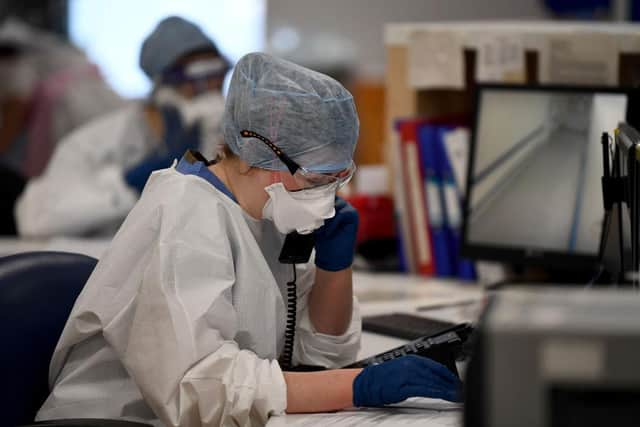Covid Scotland: When are you most infectious with Covid? How long do Covid symptoms last and why you can still test positive after ten days explained
First Minister Nicola Sturgeon has said people would still be advised to wear masks in shops and on public transport, but all legal restrictions on people and businesses would end, although the final decision is due to be reviewed on Tuesday.
However, this does not mean the virus has gone away.


Figures released on Friday by the Office for National Statistics showed Covid infections in Scotland are at their highest level since records began in autumn 2020.
Advertisement
Hide AdAdvertisement
Hide AdAround one in 18 people had Covid in Scotland in the week to March 5, the ONS infection survey has estimated.
The planned end of the official Covid rules would put more onus on individuals to understand the virus and act in a responsible way if they test positive.
Here’s everything you need to know about how long Covid lasts, when you are most infectious and how long you can test positive for.
How long does Covid last?
Most people only experience Covid symptoms for a few days and the vast majority are fully recovered within one to two weeks.
Some symptoms, such as changes to your sense of taste and smell and a cough, can linger a while longer.
If lots of symptoms persist after several weeks, then a person may have what is called Long Covid.
When are you most infectious?
For previous variants, the World Health Organisation said symptoms could begin to develop anywhere between two days and two weeks after infection.
However, the incubation period for Omicron, which remains dominant in the UK, is believed to be much shorter – between three and five days.
Advertisement
Hide AdAdvertisement
Hide AdIt is believed people are at their most infectious one to two days before the onset of symptoms, and during the two to three days afterwards.
This is why the minimum self-isolation period is currently five full days after starting to experience symptoms or receiving a positive test.
Chicago Department of Public Health commissioner Dr Allison Arwady told NBC: “As we’ve seen these new variants develop – Delta, now Omicron – what we’re seeing is everything gets sped up.
“It is taking less time from when someone is exposed to Covid to potentially develop infection. It is taking less time to develop symptoms, it is taking less time that someone may be infectious and it is, for many people, taking less time to recover. A lot of that is because many more people are vaccinated.”
Data shows the majority of people are no longer infectious seven days after beginning to experience symptoms or first testing positive, particularly when vaccinated, and the vast majority are no longer infectious after ten days.
How long can you test positive?
Most people will stop testing positive within ten days of starting to experience symptoms, or receiving their first positive test.
However, it is possible to continue testing positive for weeks or even months after having the virus.
The good news is that even if you are continuing to test positive after a long time, it is highly unlikely you are actually contagious.
Advertisement
Hide AdAdvertisement
Hide AdThe Gavi Vaccine Alliance explained: “The time taken to test negative after contracting Covid-19 depends on the severity of the case, and also on the test itself. PCR tests that hunt out parts of viral genetic material (RNA in the case of Covid-19) in our bodies and amplify it so we can detect it are extremely sensitive and can even pick up the presence of few viral fragments.
“This is because fragments of viral RNA can remain in our bodies long after the infection is over and the virus has been cleared from our system.”
Comments
Want to join the conversation? Please or to comment on this article.
